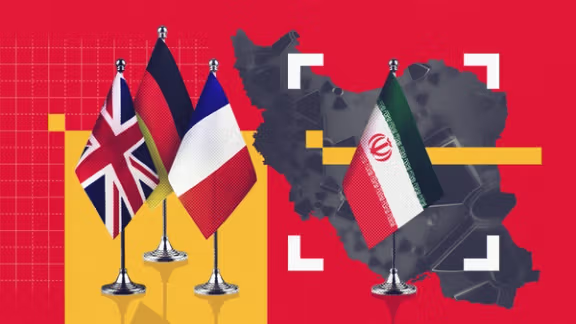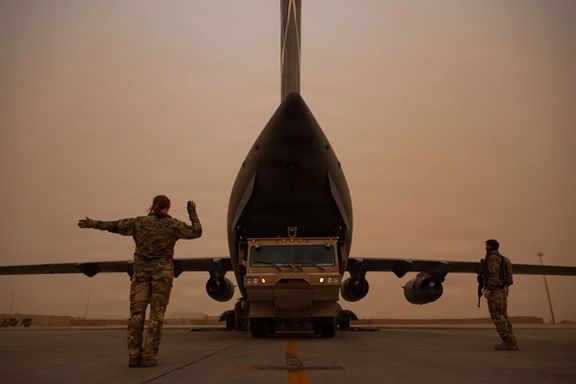Her death was the latest in a series of murders of queer Iranians by their own relatives, according to human rights groups, and testament to the grim practice's persistence in the Islamic theocracy.
Pakdel, a well-known trans activist in Iran, attended her cousin’s wedding despite threats from her family.
Upon arrival, her uncle allegedly fired a warning shot into the air before killing her, according to the Human Rights Activists News Agency (HRANA). The murder took place just days before the start of the 12-day war between Israel and Iran last month.
Pakdel had faced years of abuse, including beatings, abduction and death threats from family members.
The Norway-based Hengaw Organization for Human Rights cited a source saying she had been living in a Shiraz guesthouse after being ostracized yet remained active in Iran’s trans community.
“She never stayed silent,” the source told Hengaw, noting that Pakdel frequently used social media to advocate for trans rights and speak out against discrimination.
"As a transgender woman with lived experience in Iran, hearing this news is not only deeply distressing for me, but also traumatizing," said Shaya Goldoust, an Iranian trans activist now living in Vancouver, told Iran International. "It brings back the pain and fear I endured throughout three decades of life in that country."
Goldoust, who had gender affirmation surgery in 2012, said she feared for her life in Iran. She fled to Turkey in 2016, where she also faced discrimination, before eventually seeking refuge in Vancouver in 2020.
"Iran is a country where being different can cost you your life, and where even death is met with celebration by some," Goldoust added. "The reactions on social media, where many users justified or even welcomed her death simply because of her identity, are a chilling reminder of that truth."
Pakdel was a member of the Qashqai tribe known as “Galleh Zan.” Her killing was reportedly aimed to restore so-called family honor, a term used to justify such murders where they occur in traditional, socially conservative communities.
HRANA reported that her funeral was held in near-secrecy under family pressure, with only a small number in attendance. Her uncle later confessed and turned himself in.
No protection under the law
Shadi Amin, director of the Iranian LGBTQ+ rights group 6Rang, said Pakdel’s killing highlights how vulnerable trans people remain under Iran’s legal system.
Her murder occurred in a legal vacuum in which queer Iranians lack any formal protections and remain vulnerable to systemic abuse and lethal violence.
"As a trans person, Sogand should have been protected by the law—but they weren’t. Their murder by their uncle exemplifies the deadly intersection of patriarchy, heteronormativity, and systemic violence against the LGBT+ community," she told Iran International.
"To prevent such tragedies, we need profound political, cultural, and legal transformation."
Arsham Parsi, a queer Iranian-Canadian activist, was resigned.
“This is yet another heartbreaking and tragic incident from Iran. Sadly, it is not the first time a member of the LGBTQ+ community has been killed by their own family simply for being different — and tragically, it may not be the last,” he told Iran International.
Parsi, who founded Iran’s first underground LGBTQ+ support group in 2001, now lives in Toronto, where he leads the International Railroad for Queer Refugees (IRQR) and the Marjan Foundation, both of which support LGBTQ+ communities across the Middle East.
While being transgender is not criminalized under Iranian law, trans and queer Iranians face widespread violence, exclusion, and discrimination. Homosexuality, by contrast, is punishable by death under the Islamic Republic’s penal code.
In September 2022, two women — Zahra Sedighi-Hamadani and Elham Choubdar — were sentenced to death by the Islamic Revolution Court of Urumieh for defending LGBTQ+ rights online.
Amnesty International said the verdicts were based on their “perceived sexual orientation and gender identity.” Despite international outcry, Iranian authorities stood by the sentences.
Such honor-based killings continue to surface. In February 2024, a man in Tabriz murdered his 17-year-old queer child, Parsa, and was released after serving only six months. In May 2021, Alireza Fazeli Monfared, 20, was killed by male relatives in Ahvaz for being gay—one of the few publicly acknowledged cases.
Iranian law often grants leniency to fathers who kill their children, citing paternal guardianship.
These murders typically go unpunished and underreported, ignored by the judiciary and state-run media. Activists warn that only international pressure and public scrutiny can disrupt the cycle.
“We know the Iranian regime consistently fails to take meaningful action to prevent such violence or protect LGBTQ+ individuals," Parsi told Iran International.
That’s why the responsibility falls on us — activists, human rights defenders, and allies — to raise awareness, challenge harmful norms, and advocate for change."
But with threats continuing to grow at home, many queer Iranians seek to flee the country in search of safety abroad.














